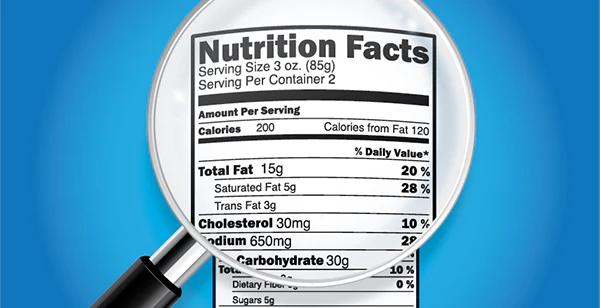Most of us have wondered if a slow metabolism is the reason behind our struggles with managing weight. While metabolism plays a role, it’s just one part of the story. Genetics, hormones, age, gender, body composition, and even your environment influence how your body manages weight. Factors like what you eat, how much you move, and the intensity of your physical activity matter too. Obesity isn’t just about eating more and moving less—it’s far more complex.
So, is a slow metabolism really to blame? Or is there more going on beneath the surface?
What Exactly is Metabolism, and How Does It Affect You?
Metabolism refers to the process by which your body converts the food you eat into energy. This energy fuels everything from breathing to cell repair. Your basal metabolic rate (BMR) represents the number of calories your body needs to perform these basic functions. Factors like age, muscle mass, hormone levels, and genetics can influence your metabolism.
But here’s the thing: metabolism doesn’t work in isolation. Even if you have a slower metabolism, other factors might be playing a much larger role in your weight gain.
Can Genetics Really Slow Down Metabolism?
Absolutely! Genetics is a major player in determining how fast or slow your metabolism works. Some people are genetically predisposed to burn calories at a slower rate, meaning they have to work harder to lose weight. Genetics testing is now available in at Modest Medix to understand the specific influence of genes on metabolism and appetite.
But while genetics may play a role, it’s not the only factor. A sedentary lifestyle, poor diet, and even stress can slow down your calorie burn just as much. So, rather than focusing solely on your genetic makeup, it’s important to look at your overall habits and lifestyle choices.
Is Age a Factor in Slowing Metabolism?
Yes, as you age, your muscle mass decreases, and fat mass tends to increase. This naturally slows down metabolism, making it harder to maintain or lose weight. This doesn’t mean it’s impossible, though—strength training and an active lifestyle can help counteract the effects of aging on metabolism.
What Are Some Common Misconceptions About Slow Metabolism?
Many people believe that a slow metabolism is the sole cause of weight gain. However, this is rarely the case. Factors such as hormonal imbalances, medications, and chronic stress can all slow down your metabolic rate. But more often than not, lifestyle factors like poor eating habits and lack of physical activity play a larger role.
Remember the Slow Burner Phenotype? People with this phenotype burn calories more slowly, but it’s more common in menopausal and aging individuals. And even in these cases, dietary changes and increased activity can make a big difference.
Is It Possible to Speed Up a Slow Metabolism?
The short answer: yes! While genetics might make weight loss more challenging, you can boost your metabolism by making specific changes to your lifestyle. Building muscle through strength training, eating enough protein, and staying active throughout the day are all proven ways to increase your metabolic rate.
However, there’s no magic pill to speed up metabolism. What works for most people is a combination of healthy eating, exercise, and stress management.
FAQs About Slow Metabolism and Weight Gain
Can drinking water boost my metabolism?
Yes, staying hydrated can temporarily increase your metabolic rate. Plus, drinking water before meals can help you feel full, reducing calorie intake.
Is skipping meals bad for metabolism?
Yes, skipping meals can slow down your metabolism as your body shifts into conservation mode. It’s better to eat smaller, balanced meals throughout the day.
Does caffeine speed up metabolism?
Caffeine can temporarily boost metabolism, but it’s not a long-term solution for weight loss.
Will eating late at night slow down my metabolism?
Not necessarily. What matters more is the total number of calories you consume throughout the day, not when you eat them.
Is it possible to have a fast metabolism but still gain weight?
Yes, even with a fast metabolism, consuming more calories than you burn will result in weight gain.
Does stress really affect metabolism?
Yes, chronic stress can increase cortisol levels, which may slow metabolism and contribute to weight gain.
Common Myths About Metabolism
- Myth: Eating spicy foods can significantly boost metabolism.
- Fact: While spicy foods can temporarily raise metabolism, the effect is minimal and won’t result in significant weight loss.
- Myth: Skipping breakfast slows down metabolism.
- Fact: While eating breakfast kickstarts your day, what truly matters is your overall calorie intake and balance throughout the day.
How Modest Medix Can Help You Manage Weight Effectively
At Modest Medix, Weight Management Clinic in Mississauga we understand that weight management is about much more than just your metabolism. Our customized medical weight loss solutions consider factors like genetics, hormones, diet, and lifestyle. With personalized support from our medical doctor (MD)and registered dietitians (RD), Health Care Educators we help you create a sustainable plan that fits your unique needs.
Whether you’re struggling with a slow metabolism or dealing with other barriers to weight loss, we offer strategies like Medical Nutrition Therapy, Behavioral Therapy, and ongoing one-on-one support. You don’t have to navigate this journey alone. Our team will help you uncover the root causes of your weight gain and provide the tools you need for lasting success.
If you’re ready to take the next step towards a healthier you, contact Modest Medix today for a consultation. Let’s work together to build a plan that fits your life, your body, and your goals.
Conclusion:
While a slow metabolism may contribute to weight gain, it’s only one part of the equation. By addressing factors like genetics, diet, lifestyle, and stress, you can take control of your weight management. At Modest Medix, we’re here to guide you every step of the way, helping you achieve sustainable, long-term success.
Ready to start your journey? We’re offering free consultations to help you uncover the root causes of your weight challenges and create a personalized plan that works for you. Contact us today and take the first step toward a healthier, NEW you!
About the Author:
Dr. Saima Khan, MD, CCFP, IPM, dABOM, is an Interventional Pain Medicine Specialist and Diplomate of the American Board of Obesity Medicine. As an Acceptance and Commitment Therapy (ACT) Therapist, she specializes in guiding patients with obesity and chronic pain toward value-driven living and meaningful actions. Dr. Khan is passionate about offering realistic, enjoyable, and sustainable health solutions that address both the physical and psychological needs of her patients. Through her innovative approach at Modest Medix and commitment to holistic care, she inspires individuals to take charge of their well-being.










